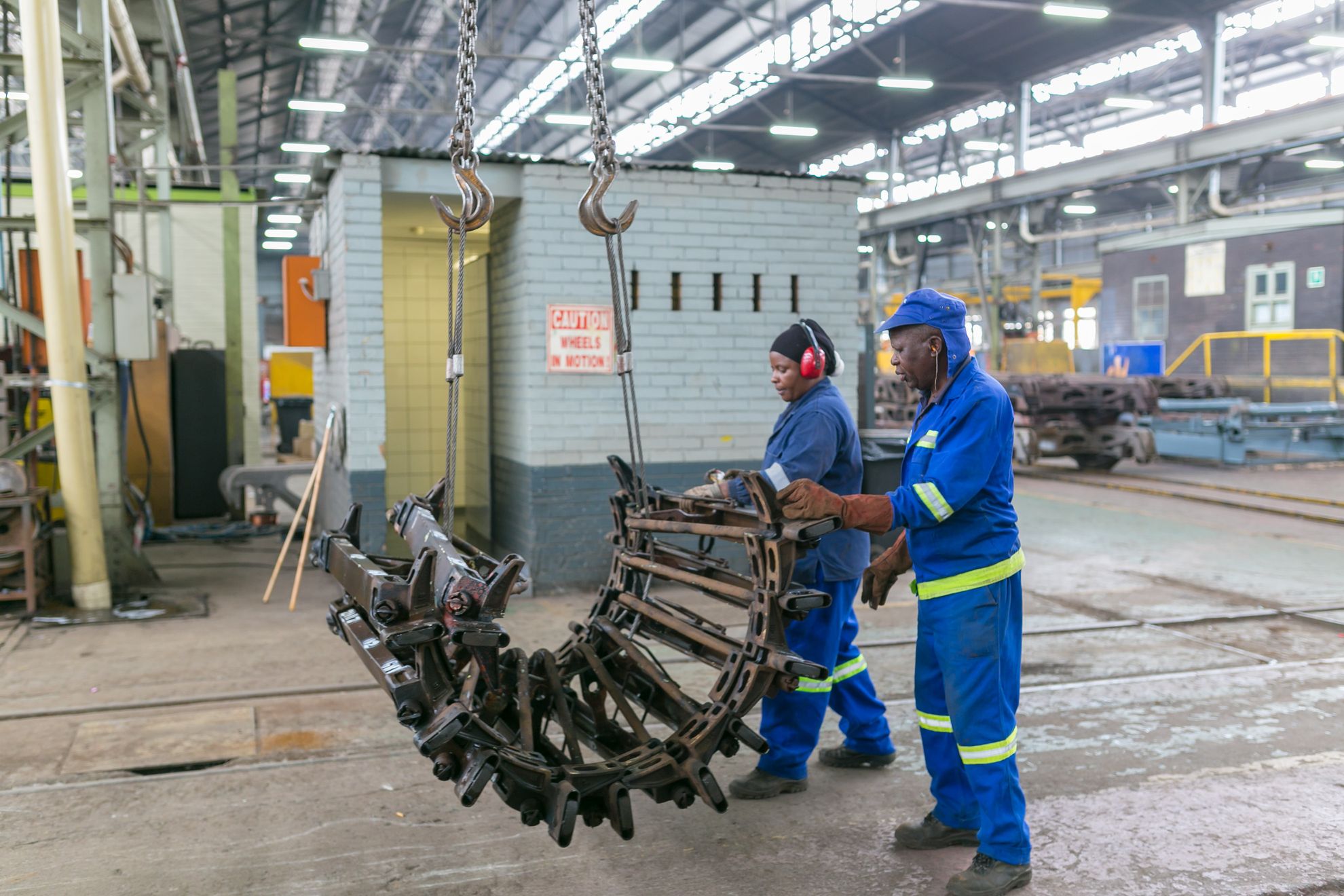Transnet Engineering enhances SAP Security with palm-vein biometrics
Postado por Editorial em 07/03/2025 em MARKET & INDUSTRYThe division has seven factories, 150 depots, and 14,500 employees; it annually manages over 11,000 wagons, 150 locomotives, 500 coaches, and 521,500 wheels in its asset management system.

Transnet Engineering. Photo:transnetengineering.net. Portal ERP South Africa.
Transnet Engineering, a division of state-owned Transnet, plays a critical role in maintaining South Africa’s rail and port infrastructure. With seven factories, 150 depots, and 14,500 employees, the division oversees the management of over 11,000 wagons, 150 locomotives, 500 coaches, and more than half a million wheels annually. Ensuring seamless operations across this vast network requires a robust asset management system.
To achieve this, Transnet Engineering relies on SAP Enterprise Asset Management (EAM), a comprehensive lifecycle management solution that streamlines the design, construction, maintenance, and eventual decommissioning of infrastructure and equipment. However, securing access to SAP within industrial and factory environments presents unique challenges. Traditional login methods require multiple workers to repeatedly sign in and out of shared workstations, leading to inefficiencies and increasing the risk of credential misuse, whether accidental or intentional. Maintaining both security and ease of access became a priority.
To address these challenges, local technology provider Linx-AS, in collaboration with realtime North America, introduced a biometric authentication solution. The system integrates Fujitsu PalmSecure technology into custom-built SAP EAM kiosks, allowing employees to securely access SAP functions with a simple palm-vein scan. This contactless authentication method eliminates the need for passwords, reducing login time while ensuring that only authorized personnel can access sensitive systems.
Additionally, realtime’s bioLock software enhances security by linking every transaction to an individual user. This prevents unauthorized access to SAP modules—especially critical areas such as accounting—and ensures that employees cannot authorize transactions outside their permissions.
The shop-floor kiosks, designed by Werner Simpson from Linx-AS, have been deployed across factories and depots, providing an intuitive graphical user interface (GUI) for maintenance personnel. The implementation has significantly improved workflow efficiency, as employees no longer waste time entering or resetting passwords. Instead, a quick palm scan grants immediate access to relevant SAP functions.
Beyond efficiency gains, the system has strengthened employee accountability by preventing unauthorized actions and fraudulent identity use. Each transaction is now securely logged and traceable, reducing shrinkage and potential security breaches.
According to Thomas Neudenberger, Chief Operating Officer of realtime North America, palm-vein technology is particularly suited for industrial environments. Unlike fingerprint-based biometrics, sub-dermal vein patterns do not degrade over time and remain unaffected by dirt, moisture, or superficial hand injuries. Additionally, the contactless nature of the system minimizes health risks—a crucial advantage in high-traffic workspaces.
The biometric system also boasts exceptional accuracy, with a false acceptance rate (FAR) of just 0.00001% (granting access to an unauthorized person) and a false rejection rate (FRR) of 0.01% (denying access to an authorized user).
Beyond securing SAP access, the kiosk-based system provides real-time monitoring of all SAP-related activities. If any anomalies are detected, instant alerts notify management, allowing for swift intervention. Additionally, every action is logged and traceable, ensuring that the right individuals are held accountable.
By integrating biometric authentication, Transnet Engineering has successfully enhanced security, efficiency, and workforce accountability, setting a new standard for asset management in industrial environments.




